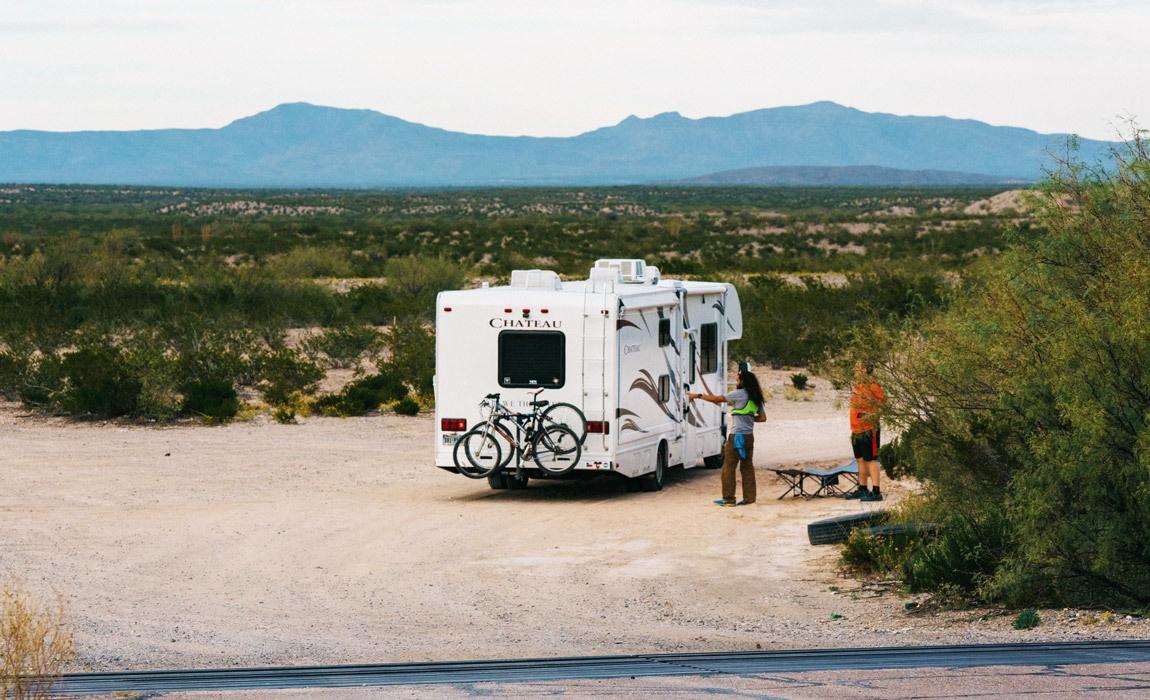If you're itching to get your RV on the road, now is the time to start your travel preparations. In addition to studying your route, reviewing your budget and booking your site, attend to the steps below to make sure your RV vacation is low-stress.
Clean Your RV Before You Leave
While you certainly emptied your vehicle after your last RV trip, take the time to carefully wipe down every surface, disinfect all the clean water and wastewater vessels, and fully vacuum and mop your rig. Even when you're not moving, dust and grit can settle in your rig. While you have easy access to power and water, start with a spotless and empty rig.
Do a Complete Mechanical Check of Your RV
This would include taking a look at standard items such as the engine, wiring, hoses, climate control etc. Additionally, take special care to test and examine your batteries. This is true for the main and auxiliary batteries for the RV itself but also on any items such as toys you are hauling or generators. Make sure to check those items too. This is especially important for batteries that might not have been used in a while. If your batteries are sealed, check their charge level and fire up the generator or put out the solar panels to make sure your rig is both charging up and holding power. Poorly maintained batteries can be dangerous. If you're not comfortable, hire someone for this critical task.
List Your Electrical Load
Talk with your traveling clan about what electrical items they're going to bring. While keeping phones charged up won't take too much power, traveling with a blow dryer or any other item that draws a lot of power may require you to budget the electricity that gets used before you turn on the generator. Keeping your batteries in good shape means not drawing them too low before you charge them back up.
Test Your Communications Gear
Chances are that your road trip will be taking you to a place that is far from major cities - that's sort of the point of RV'ing right? Unfortunately, that means there will be fewer folks to fix things such as your satellite dish, radios, and other gear that you require for staying in touch as well as need in emergencies. Plus, another consideration is that it is possible you might be out of normal cell range, but that can be fixed easily. For instance, try an RV cell booster from weBoost so you can extend the range way past where you might be normally.
Budget Considerations
As you track your electrical budget, take a look also at your travel expense budget. Fuel is cheaper now than in times past, but RVs don't get great mileage. You'll need ready cash to cover
- camping fees
- fuel
- groceries
- activities
- meals out
While many of these expenses can go on a credit or debit card, having enough cash in the rig to help in an emergency is critical.
Cool Down the Refrigerator Before You Leave
Even if you're not buying any foods until you get closer to your campsite, make sure you power up your refrigerator for at least half a day before you get to your first grocery stop. Loading fresh groceries into a cold refrigerator will lessen the risk of spoilage. This is especially important to consider before setting out on a RV trip since when a refrigerator fails, you can tell because the food is warm. However, food that spoils and then gets chilled properly may be impossible to notice until you get sick.
Create a Chore List
When you get to your campsite, there are tasks that will need to be completed before the fun can start. If you're traveling with children, make sure that everyone has age-appropriate tasks to lighten the load and help everyone enjoy their trip. Your teenager can be in charge of filling up the drinking water filter, and younger children can keep an eye out for micro-trash in the campsite. Everyone can do a little food prep and help with cleanup. Many of us have been missing the chance to travel. With a bit of prep work, you can make your RV vacation fun and relaxing time for everyone. Knowing that you travel in a fully charged, spotlessly clean rig will be a great start to your next RV adventure.

